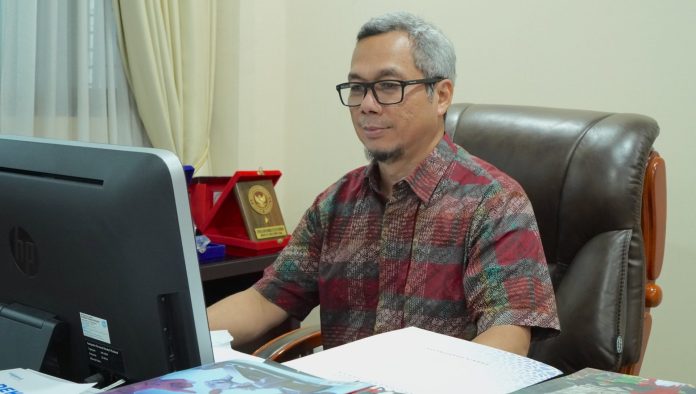JAKARTA – The issue of water is indeed very complicated since it involves various institutions. In fact, water politics has also become a bridge for leaders to win regional head elections and even presidential elections.
Unfortunately, the condition of water in big cities in Indonesia is still at an alarming stage.
So, how did President Joko Widodo persuade an international party like the World Water Forum (WWF) to come to Indonesia and hold a forum here?
“At the time of the G20, they (WWF) met President Jokowi and they said that they were impressed with how Indonesia manages water, one of which is by building lots of dams so that we have enough water reserves. That same way is not available in other countries, like France for example,” said Director General of Information and Public Communication (IKP) of the Indonesian Ministry of Communication and Informatics (Kominfo) Usman Kansong.
Usman said, WWF was very impressed with the various steps and policies taken by the Indonesian government to maintain a clean water supply.
Inviting WWF to Jatiluwih was one of the strategies of President Joko Widodo and the Minister of Public Works and Public Housing Basuki Hadimuljono when they met the team from WWF.
“One of the things we did at that time was visiting Jatiluwih. One should note that it has become a World Heritage for the paddy field system, and there is an irrigation system there,” said Usman.
The terracing in Jatiluwih has received recognition from UNESCO as a line of world culture since 2012.
From Jatiluwih, he continued, Indonesia will show a positive intention in protecting and managing clean water and the way we manage it so it can bring prosperity to the people.
Learn From Other Countries
Not only giving an example, said Usman, through WWF, Indonesia will also learn about how to manage clean water in urban areas.
In fact, Indonesia will also learn how to solve the shortage of clean water in the country.
This is because population growth in various parts of the world such as Africa will threaten the availability of clean water in the future.
“The population will increase, meaning that more people will have to be supplied with drinking water. They also must be fed, and in the process of feeding them, water is also needed,” said Usman.
For this reason, Usman is sure that, in the upcoming WWF meeting, the participating countries will also learn from Indonesia in solving water problems.
When Water Becomes Political Policy
Usman said President Joko Widodo’s decision to increase the number of dams was a political policy to support the availability of water and food supply in Indonesia.
“Dams are politics, that’s the political policy of a head of state, right? That can later go down to regional heads on how they carry out positive water politics,” said Usman.
After all, he continued, water politics can also increase people’s welfare. For example, by making regulations directly from the central government that will be practiced in each province to district.
However, Usman hopes that the water policy will be carried out by regional heads. So that Indonesia will not be short of water in the future.




